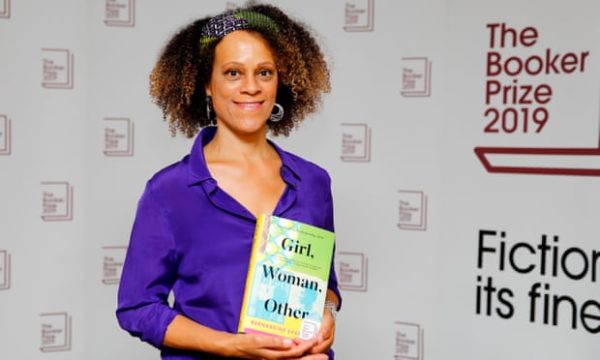
While better known in the African literary scene as the founder of the massively influential Brunel International African Poetry Prize, Bernardine Anne Mobolaji Evaristo, born in 1959 to a Nigerian father and an English mother, has for two decades been one of the most innovative writers in British and contemporary literature, reimagining history to create space for Black and Black British and queer women and men in her fiction.
The vice chair of the UK’s Royal Society of Literature (RSL) and a recipient of the Member of the British Empire (MBE) honour for her services to literature, the Brunel University creative writing professor’s work as a curator has opened doors for an entire generation of British and African poets. The success of her creative and curatorial careers, their combination and extents, is arguably unprecedented.
Her most recent book, Girl, Woman, Other, her eighth, was days ago awarded the Booker Prize for Fiction, making her the first Black woman, the first Black British person, and the second Nigerian to receive the honour. In celebration, Brittle Paper brings you details of every book she has published.
Book descriptions are adapted from those of their publishers.
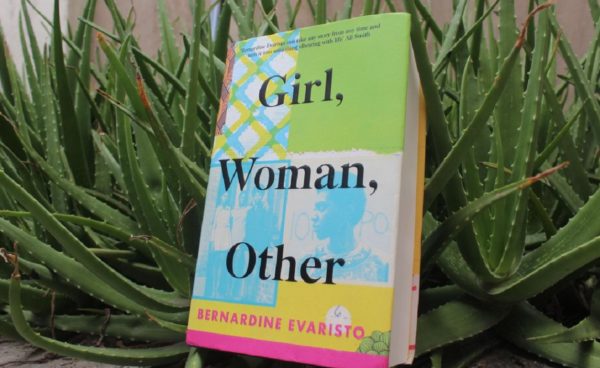
GIRL, WOMAN, OTHER (HAMISH HAMILTON, 2019), NOVEL
Teeming with life and crackling with energy—a love song to modern Britain and black womanhood. Girl, Woman, Other follows the lives and struggles of twelve very different characters. Mostly women, black and British, they tell the stories of their families, friends and lovers, across the country and through the years. Joyfully polyphonic and vibrantly contemporary, this is a gloriously new kind of history, a novel of our times: celebratory, ever-dynamic and utterly irresistible.
Shortlisted for the 2019 Gordon Burn Prize, the 464-page novel is described by Evaristo as “fusion fiction.”
Praise for Girl, Woman, Other:
“Bernardine Evaristo can take any story from any time and turn it into something vibrating with life.” Ali Smith, author of How To Be Both.
“Exuberant, bursting at the seams in delightful ways… Evaristo continues to expand and enhance our literary canon. If you want to understand modern day Britain, this is the writer to read.” New Statesman.
“She says things about modern Britain that no one else does.” Maggie Gee, Guardian.
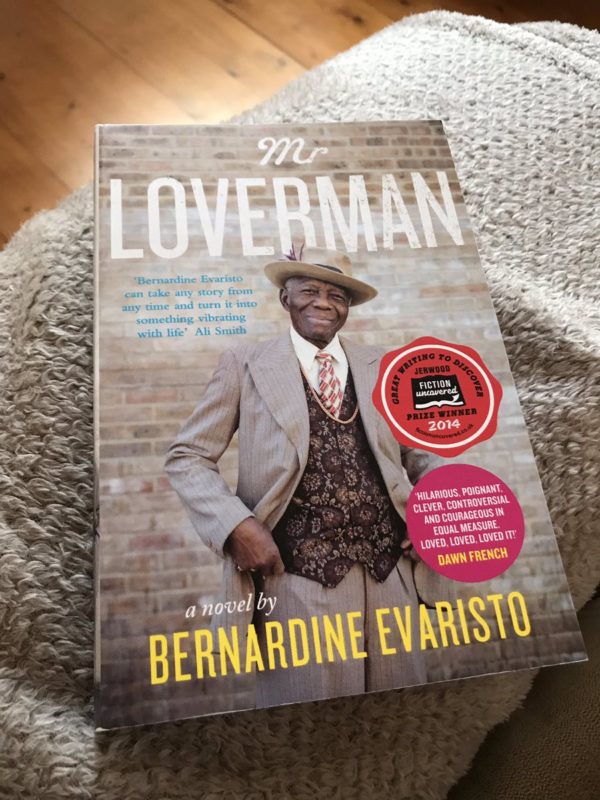
MR LOVERMAN (PENGUIN, 2013), NOVEL
Winner of the 2014 Jerwood Fiction Uncovered Prize and the 2015 Triangle Publishing Awards’ Ferro-Grumley Award for LGBT Fiction, Mr Loverman is about a closet gay septuagenarian Antiguan-Londoner.
Barrington Jedidiah Walker is seventy-four and leads a double life. Born and bred in Antigua, he’s lived in Hackney since the sixties. A flamboyant, wise-cracking local character with a dapper taste in retro suits and a fondness for quoting Shakespeare, Barrington is a husband, father and grandfather—but he is also secretly homosexual, lovers with his great childhood friend, Morris. His deeply religious and disappointed wife, Carmel, thinks he sleeps with other women. When their marriage goes into meltdown, Barrington wants to divorce Carmel and live with Morris, but after a lifetime of fear and deception, will he manage to break away?
Mr Loverman is a ground-breaking exploration of Britain’s older Caribbean community which explodes cultural myths and fallacies and shows the extent of what can happen when people fear the consequences of being true to themselves.
Praise for Mr Loverman:
“One of Britain’s most innovative authors . . . Bernardine Evaristo always dares to be different.” New Nation.
“Evaristo remains an undeniably bold and energetic writer, whose world view is anything but one-dimensional.” Sunday Times.
“Audacious genre-bending, in-yer-face wit and masterly retellings of underwritten corners of history are the hallmarks of Evaristo’s work.” New Statesman.
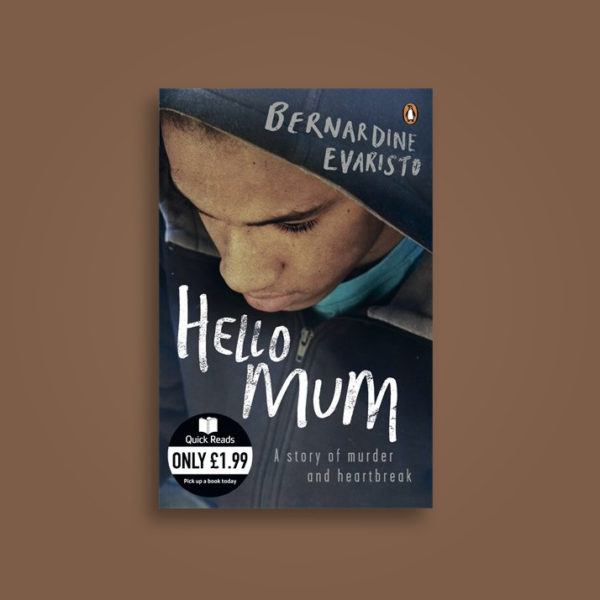
HELLO MUM (HAMISH HAMILTON, 2010), NOVELLA
A epistolary novella told in the voice of a 14 year old boy writing to his mother who lives on a London estate and gets into trouble, the 96-page Hello Mum is an exploration of gang violence. We follow the boy’s story as it “deepens our understanding of the context of his life and the decisions he makes that shapes it.”
In its year of publication, Evaristo was the Suffolk Big Read author, and 40,000 copies the novella were distributed throughout the county including to every school. Her website states that “over 70,000 copies of the novella have been sold to date, through non-traditional outlets.”
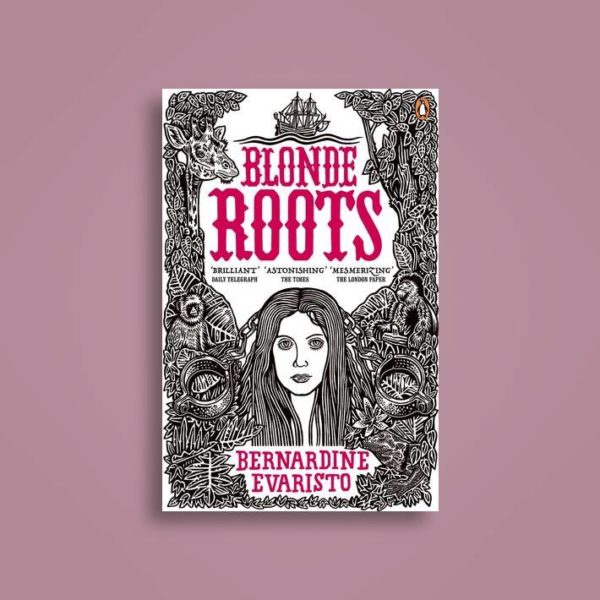
BLONDE ROOTS (PENGUIN, 2008), NOVEL
In her first fully-prose novel, which in 2009 was longlisted for the Orange Prize for Fiction and won the Orange Youth Panel Award, Africans enslave Europeans.
It tells the story of a young white girl who, kidnapped from her home in England, is forced into slavery by her “Aphrikan” masters in the United Kingdom of Great Ambossa.
The Orange Prize called it “a phenomenal book. It is so ingenious and so novel. Think The Handmaid’s Tale meets Noughts and Crosses with a bit of Jonathan Swift and Lewis Carroll thrown in. This should be thought of as a feminist classic.”
It went on to be longlisted for the 2009 International IMPAC Dublin Literary Award and shortlisted for the 2010 Hurston Wright Legacy Award.
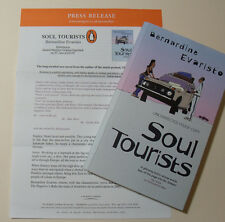
SOUL TOURISTS (PENGUIN, 2005), NOVEL
This 240-page novel, which mixes prose, poetry, prose-poetry, and scripts, follows a mismatched black British couple who go on a car journey in Europe and find themselves in the Middle East.
Stanley Williams, angst-ridden banker and boffin, wonders whether there’s more to life than his daily nine-to-five grind. One night he’s dragged to a disco at Piccadilly Circus and there he meets Jessie: artiste, motormouth, ducker and diver. She swoops Stanley out of his soulless life and off on a rollercoaster road trip across Europe. Along the way, the man, Stanley, meets ghosts of colour from European history who transform his understanding of the continent and his sense of belonging—ghosts including Pushkin and his African great-grandfather, the mixed-race Alessandro de’ Medici of Florence, the Chevalier de St. Georges, Mary Seacole, and Hannibal of Carthage.
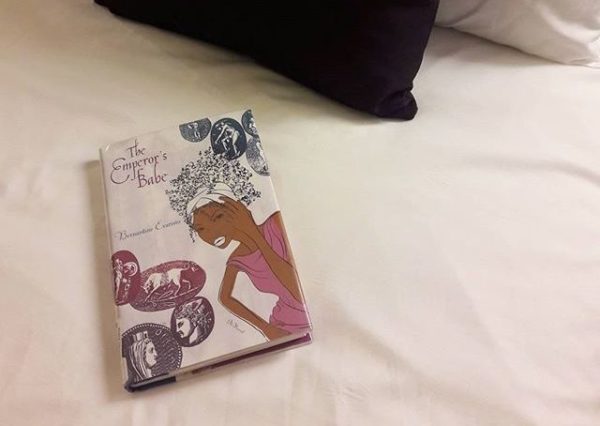
THE EMPEROR’S BABE (PENGUIN, 2001), NOVEL
This coming-of-age verse novel, which won Evaristo an Arts Council England Writer’s Award in 2000 and a Nesta Fellowship Award in 2003, is about a black girl in Roman London, in 211 AD.
A city of slum tenements and sumptuous villas, of orgy queens, drag queens and drama queens, Londinium is a place where the currency is often sex, where children go to work aged five and marriage is a career move. Through the bustling city, we follow Zuleika, feisty and precocious daughter of Sudanese immigrants-made-good. Married off at eleven to Felix, a rich Roman three times her age, perpetually away on business, Zuleika drifts about his villa, bored, until one night several years later when Septimius Severus, the Roman emperor, newly arrived in town, spots her at the theatre.
Silver-tongued and merry-eyed, this is a story in song and verse, a joyful mash-up of today and yesterday. Kaleidoscoping distant past and vivid present, The Emperor’s Babe asks what it means to be a woman and to survive in this thrilling, brutal, breathless world.
Praise for The Emperor’s Babe:
“Smart, imaginative, and readable . . . A rich farrago of historical fact and outrageous fancy.” The New York Times Book Review.
“A heroine of ancient times for the modern age… a glittering fiction… brilliant.” The Times, London.
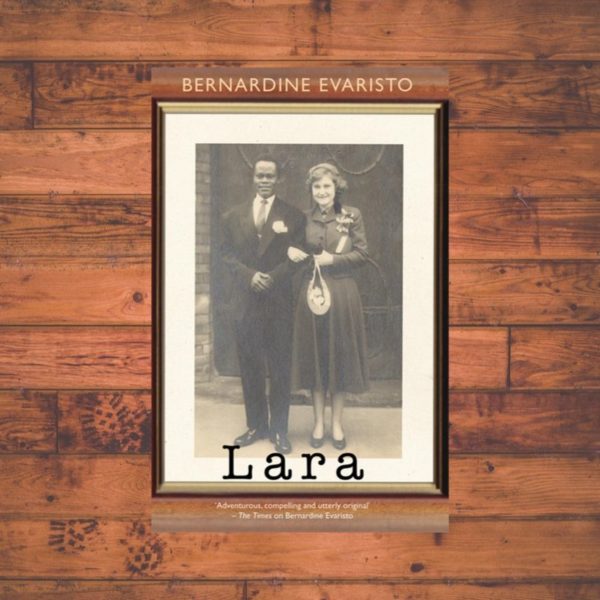
LARA (ANGELA ROYAL PUBLISHING, 1997; BLOODAXE BOOKS, 2009), NOVEL
First published in 1997 and then expanded and re-published in 2009, Lara is a semi-autobiographical verse novel, based on Evaristo’s family history. Set across three continents, seven generations and 150 years, it explores the eponymous Lara’s childhood as the biracial daughter of an Englishwoman and a Nigerian man in 60s and 70s London, and takes the reader on stories of her parents’ childhood and inter-racial marriage and her roots in England, Nigeria, Ireland, Germany and Brazil.
The cover photograph is of Evaristo’s parents’ wedding day in 1955, in Camberwell, London.
For Lara, she received the EMMA Award in 1999.
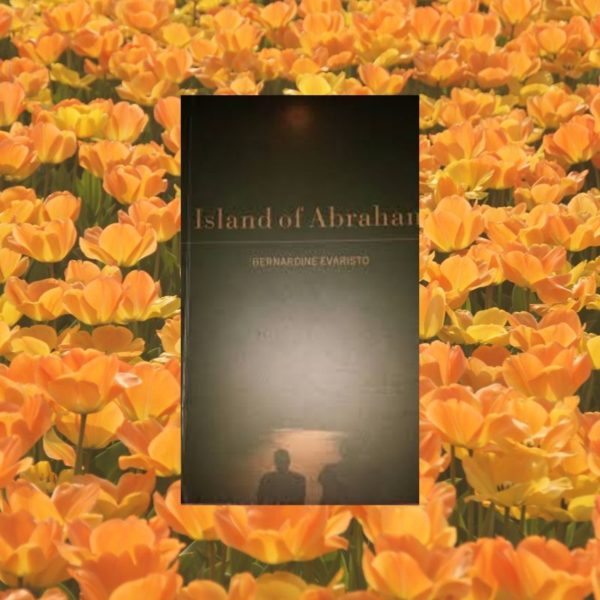
ISLAND OF ABRAHAM (PEEPAL TREE, 1993), POETRY COLLECTION
Very little information is available on Evaristo’s debut book, this 64-page poetry collection, released by a publishing press that has been a home for the best in Caribbean and Black British writing.
For updates on Bernardine Evaristo’s work, visit her website: bevaristo.com.
We will be bringing you a guide to all her projects as well.







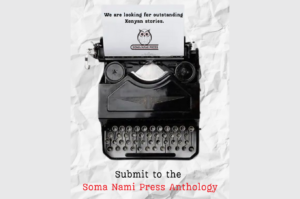

COMMENTS -
Reader Interactions